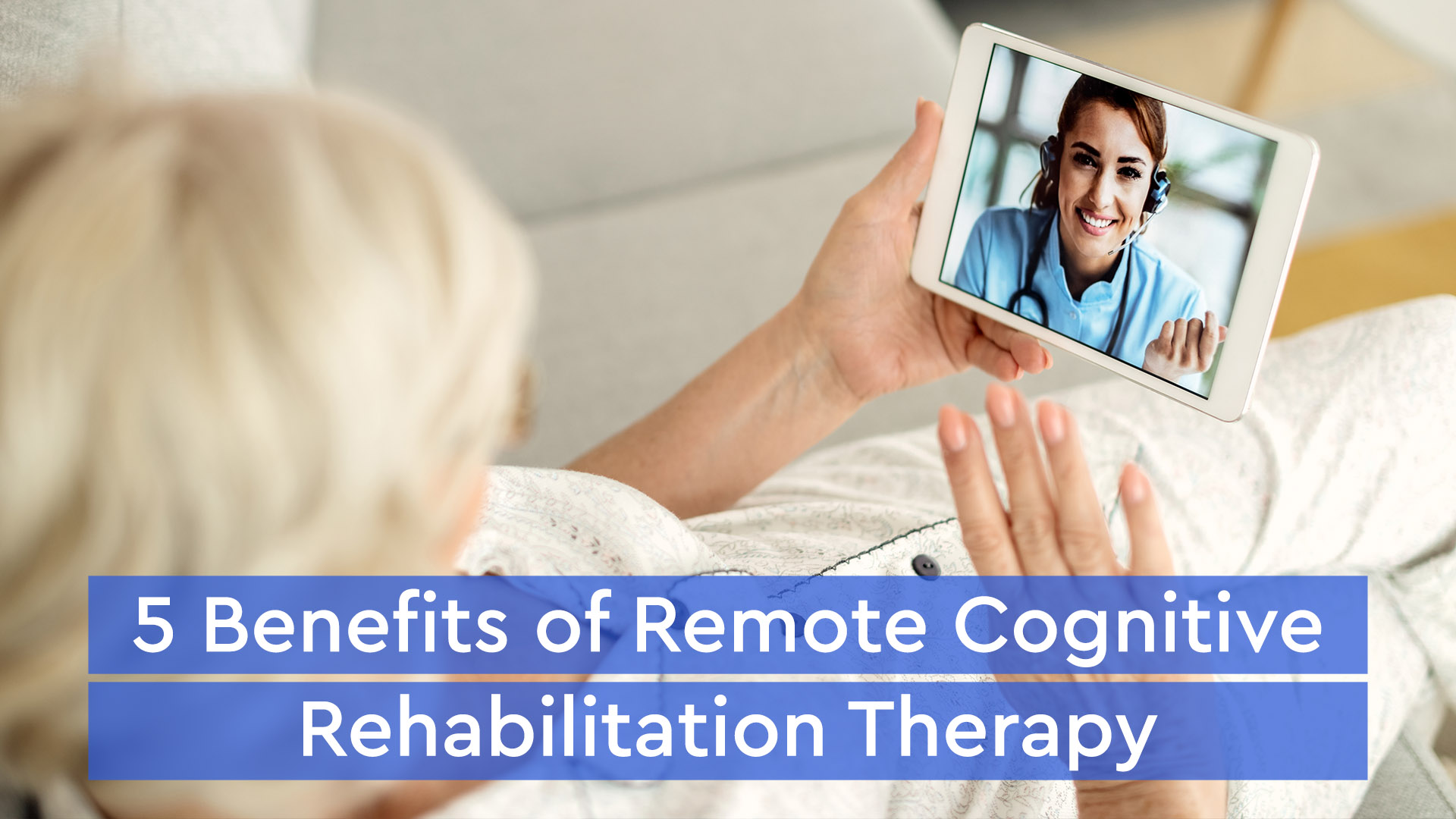5 Benefits of Remote Cognitive Rehabilitation Therapy

Many obstacles exist for people who need cognitive rehabilitation services. Mobility issues, the need to travel long distances to see a provider, not having access to transportation and comorbid medical conditions are just a few. To overcome these barriers, therapists can provide remote cognitive rehabilitation therapy services over the internet. Meeting platforms with secure services allow therapists to provide face-to-face interaction that is needed to maintain the therapist-patient connection. In addition, therapists may select a cognitive rehabilitation tool that allows for home access for both the therapist and client alike. Providing rehabilitation services over the internet and e-therapy is growing in popularity.
1. Patients do not need to travel to an office:
In regards to today’s youth, the modern working family does not have the time to travel 45 minutes (or longer) to an office to access rehabilitation services. Commuting adds additional stress that can decrease the efficacy of therapy being provided. The ability to provide cognitive rehabilitation services remotely for today’s youth allows them to access a cognitive skill curriculum provided by the therapist and have time to do assignments given by the school.
2. As a therapist with an online tool, your ability to impact more lives is unlimited:
People all over the world need cognitive rehabilitation services, but many have physical barriers that prevent them from accessing needed care. Examples of physical barriers include not having access to transportation, living far away from a provider that provides needed services or lack of mobility. By being able to provide online cognitive rehabilitation therapy, you can reach more patients where they are and help them achieve their therapy goals.
3. Group Therapy Can Start and Continue:
Many meeting platforms allow you to have multiple people attend a meeting. With these platforms, you can provide group therapy. By using an online cognitive rehabilitation tool, you can set up each client with their own account and have them participate in a group cognitive rehabilitation activity from the comfort of their own home. After doing some cognitive exercises on a platform, you can have a group discussion on strategies used during these exercises and help foster generalization and application of strategies to everyday life.
4. Like physical exercise, intensity and duration are needed for change:
You would not go to the gym for one session a week and expect drastic changes, right? Cognitive rehabilitation functions the same: it takes repeated sessions, time, and guidance of a licensed clinical provider. Therapists providing cognitive rehabilitation can assign “homework” for their clients to do in addition to therapy sessions with them. This way, clients can practice cognitive skills several times a week. This will help them maintain strong skills and strengthen weaker ones.
5. Reduction of Injury:
traveling is dangerous for many patient populations, such as the elderly or people with neurological conditions. Mobility issues plague these patient populations and pose a risk of slip-and-falls and motor vehicle accidents when commuting to appointments. Loss of independence is common in these populations, and some patients may put themselves in harm’s way to access therapy services. Home-based therapy can remove unnecessary risks so that patients can access cognitive rehabilitation resources and maintain their safety from home. In addition, removing transportation and physical presence necessities to access therapy can improve treatment adherence in these patient populations.
Home cognitive rehabilitation offers many benefits to a variety of patient populations: youth, the elderly, neurological and psychiatric patients can benefit from having cognitive rehabilitation resources at their fingertips. Removing physical barriers allows more people to access needed care, while a therapist works with these individuals on building cognitive skills needed for everyday life. These home-based services are very much needed, and the demand will only increase as people age, move to different parts of the world, and technological use becomes more prominent for everyday living.
If you are a clinical provider looking for a web-based cognitive tool that you can use with your clients to provide a remote cognitive rehabilitation therapy program, To learn more about cognitive remediation therapy at home check out our software today.









